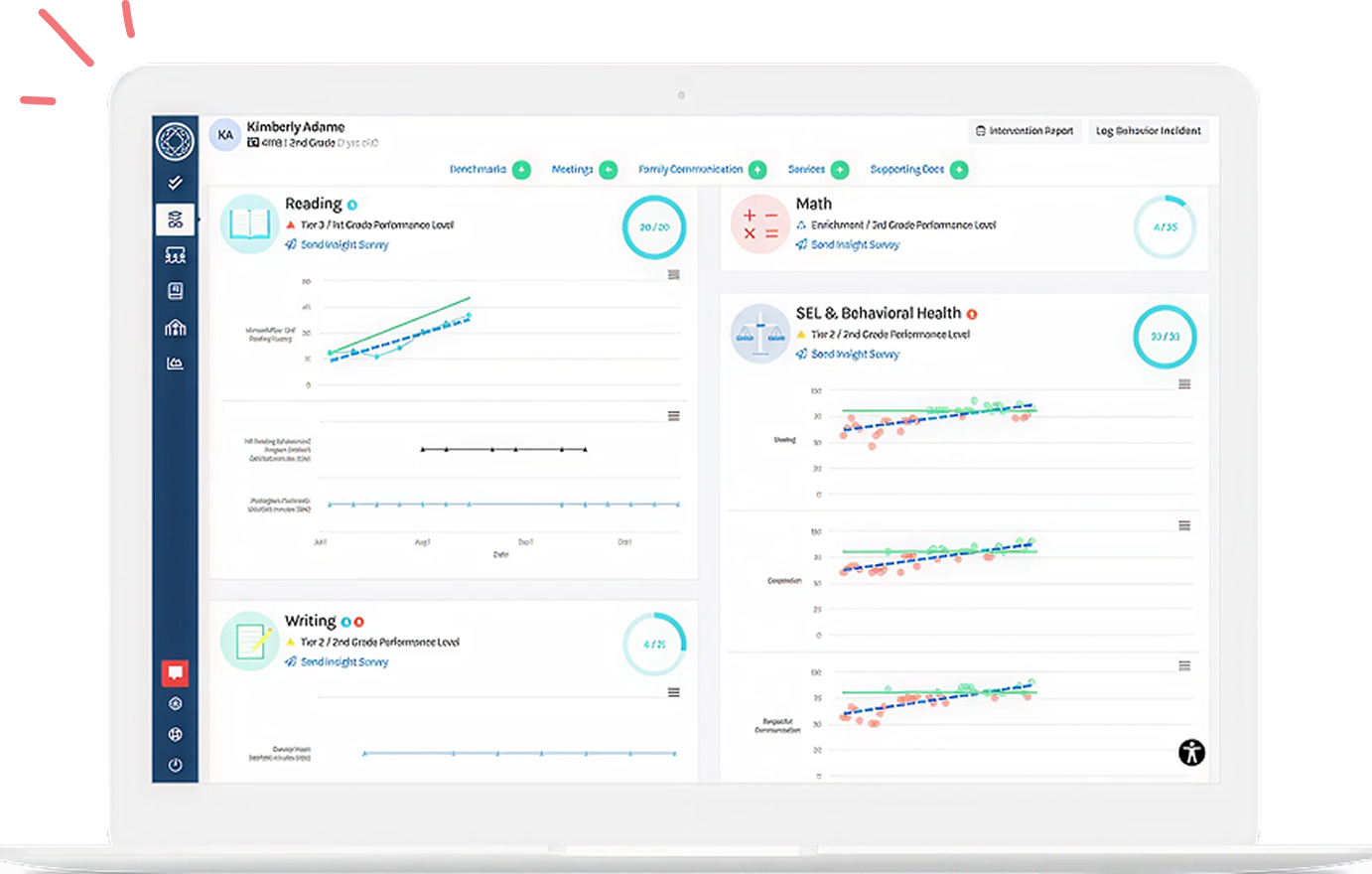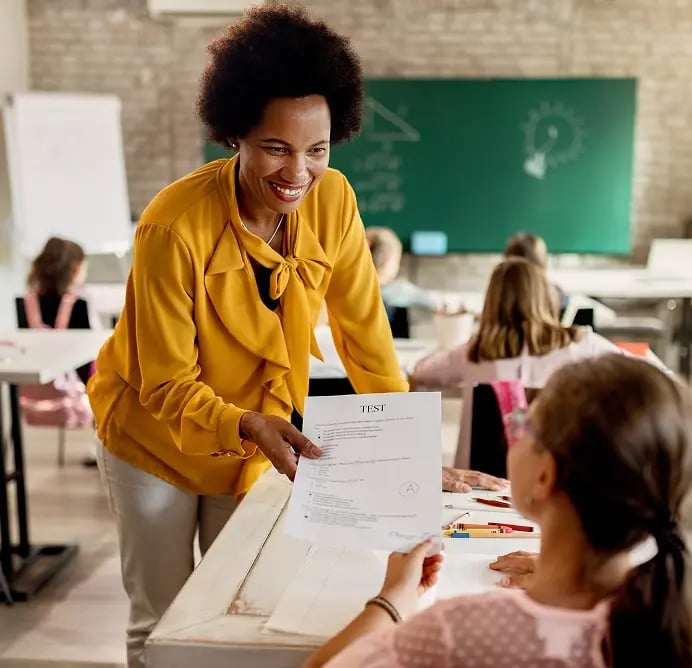Students who are meeting or exceeding standards may require enrichment beyond the core to demonstrate academic growth. It is the school’s responsibility to ensure that all students make academic progress regardless of their entry-level. The Branching Minds Support Library contains learning activities that may be used as early as Tier 1, as teachers design differentiated instruction for individual or small groups of students. Below are some examples from the Branching Minds Support Library:
Concrete-Representational-Abstract (CRA). This research-based strategy teaches students to approach math problems from three levels (concrete, representational, and abstract) in order to deepen their understanding of math concepts. First, students are provided with concrete examples of math concepts using physical, hands-on materials. Next, representational examples of the same concept are provided through pictures or drawings. Lastly, an abstract form of the math concept is introduced, using appropriate math symbols. When used consistently, this strategy promotes conceptual and procedural skills related to specific mathematics concepts.
Enhanced Core Reading Instruction. This research-based core reading program provides teachers with 150 ready-to-use daily foundational skills lessons for students in kindergarten through 2nd grade. The curriculum is aligned with Common Core State Standards and rigorous studies have demonstrated its positive impact on reading achievement.
Everyday Mathematics. This curriculum uses collaboration and real-world applications to help students develop a conceptual understanding of math principles. The material is structured so that lessons tie into previous and future lessons and activities are used to emphasize real-world examples of concepts. Research has shown that this program is able to improve math achievement for elementary school students.
Facing History and Ourselves. This social-emotional learning program aims to promote core character education values and help middle and high school students develop moral reasoning skills. Throughout the program, students learn to move from thought to judgment to participation as they confront the moral questions inherent in a study of violence, racism, antisemitism and bigotry. Students also examine historical events, in particular the events that led to World War II and the Holocaust. Research has shown that students who participate in this program improve in their prosocial behaviors and empathy towards others.
About the author
Branching Minds
Branching Minds is a highly respected K-12 services and technology company that leverages the learning sciences and technology to help districts effectively personalize learning through enhancements to their MTSS/RTI practice. Having worked with hundreds of districts across the country, we bring deep expertise in learning sciences, data management and analysis, software design, coaching, and collaboration. Combined with our extensive toolkit of resources, PD, and technology, we provide a system-level solution. We are more than a service or a software provider, we are partners who will deliver sustainable results for educators, and a path to success for every learner.

Your MTSS Transformation Starts Here
Enhance your MTSS process. Book a Branching Minds demo today.














.jpg?width=716&height=522&name=Finding%20a%20Competitive%20Grant%20to%20Fund%20Your%20MTSS%20(preview).jpg)
.png?width=716&height=522&name=Tech-Learning-Most-Influential-Edtech-Product-2025(preview).png)
